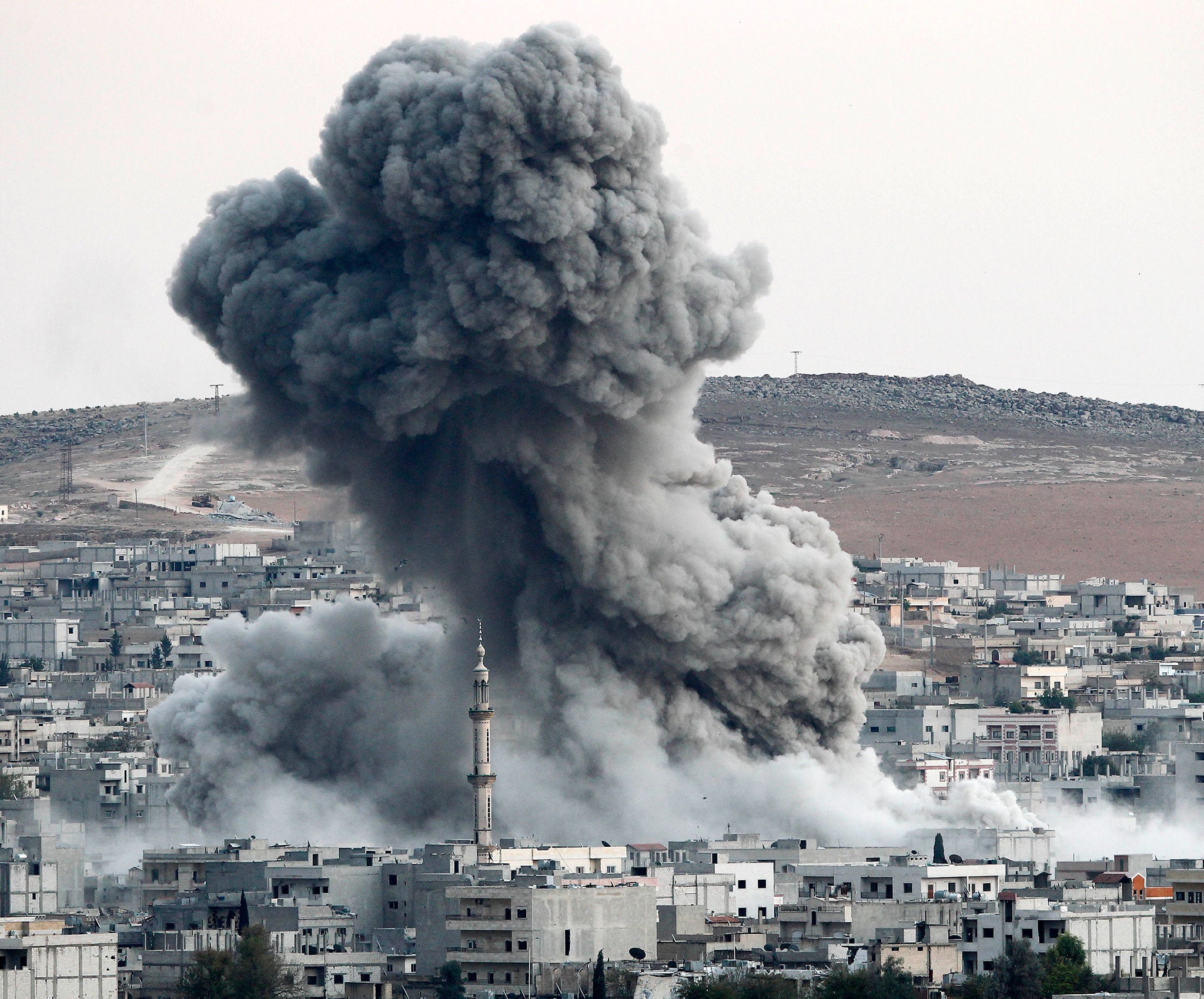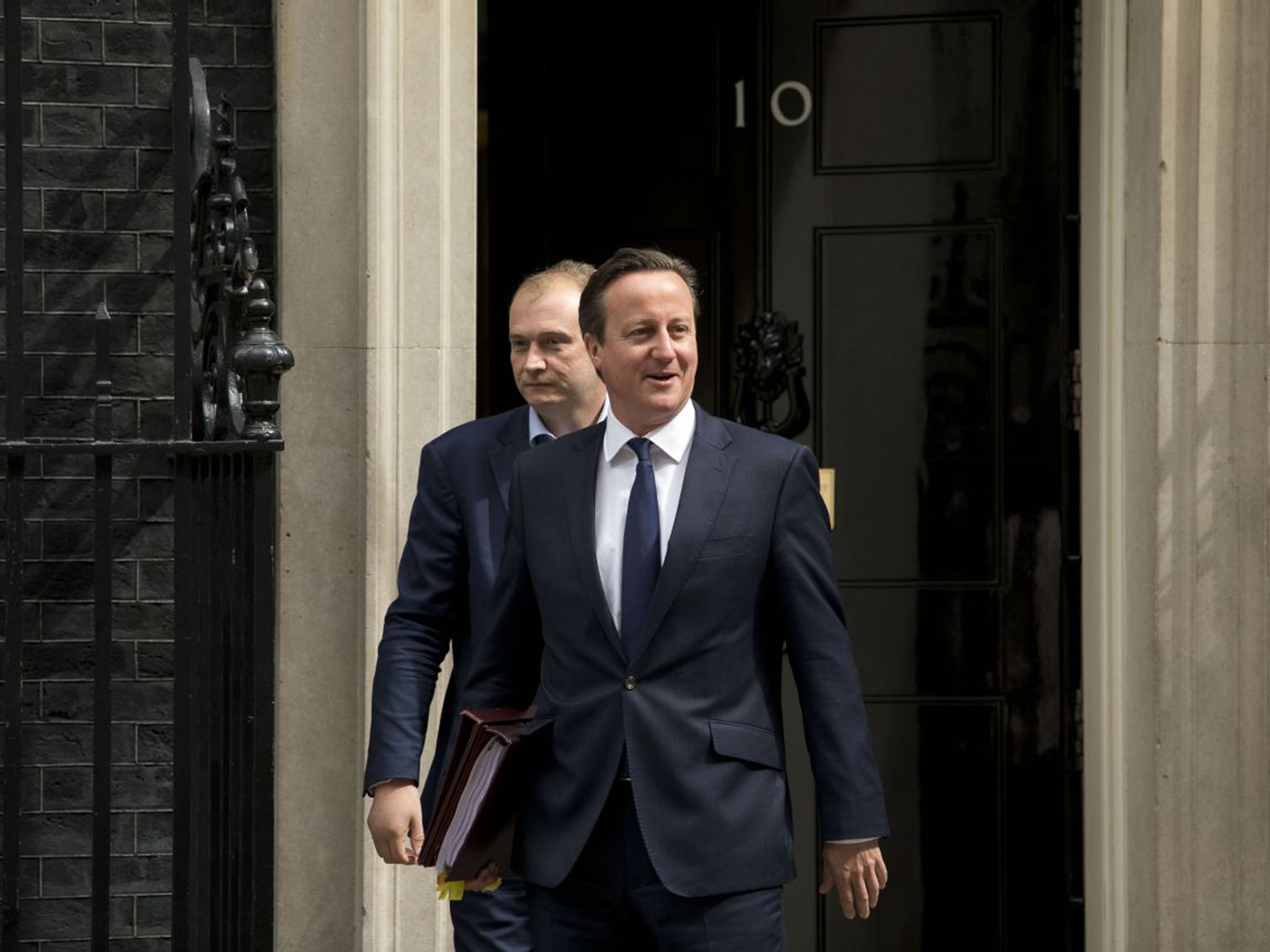David Cameron 'was aware' British pilots carried out Syrian air strikes despite Commons vote
Details of involvement of up to 20 British personnel was kept from the public

David Cameron was aware for months that British pilots were carrying out air strikes in Syria, it has emerged. But the Prime Minister failed to reveal this to the Commons despite MPs voting specifically against the UK taking part in military missions in the country.
Details of the involvement of up to 20 British personnel in Syrian strikes was kept from the public – and revealed only following a Freedom of Information request by the pressure group Reprieve.
The UK servicemen involved were embedded with allied US, Canadian and French forces and not under a British chain of command. According to military sources, three UK pilots who had taken part in air strikes were based on an US aircraft carrier flying F-18 Super Hornets. The USS Vincennes had been deployed in the Gulf in operations from October last year until three months ago.
The embedding was not mentioned by the Defence Secretary, Michael Fallon, or Defence minister Lord Howe when they spoke about the UK’s mission in Syria and Iraq on Thursday.

The Conservative MP John Baron, who had voted against action in Syria in 2013, demanded that UK personnel be withdrawn from the embeds because the involvement of British serviceman in Syria strikes “showed an insensitivity to Parliament’s will”. He added: “The Government has promised there would be no British involvement in military action in Syria unless approved by Parliament, yet British personnel have been involved.”
Jennifer Gibson, a legal officer for Reprieve, said: “It is alarming that Parliament and the public have been kept in the dark about this for so long. We need an open and honest debate about Iraq and Syria; we can’t have that, though, until the UK comes clean about what actions its personnel are already taking.”
Labour said that it would be calling on ministers to make a Commons statement on Monday about the role British pilots had played. Speaker John Bercow is expected to grant MPs an urgent question requiring ministers to explain whether they have misled the House or acted in breach of a parliamentary resolution.
The Commons had voted against joining US-led air strikes in Syria in 2013 by 285 votes to 272 after President Bashar al-Assad’s forces used chemical weapons.
In the end, Washington did not carry out the threatened attack after the regime agreed to hand over its stockpile of chemical weapons. Instead, it was Isis, which has been fighting the regime, which subsequently became the target of the US and its allies in Iraq and Syria. Britain, however, has confined participation in air strikes to Iraq, although UK aircraft had taken part in intelligence gathering from Syrian airspace.
Mr Fallon said: “These are a handful of British pilots who had been embedded with American forces and are part of an American military operation for which the Americans have full approval.” The Ministry of Defence stated: “UK embeds operate as if they were the host nation’s personnel under that nation’s chain of command.”
The Prime Minister’s spokeswoman said: “The PM was aware that UK personnel were involved in US operations and what they were doing.”
No British pilot is currently engaged in a combat role over Syria, said the Ministry of Defence.
Embedded pilots: How they work
British pilots operating with foreign forces would have the British flag on their flying suits and carry British identity papers: if shot down, the enemy would know who they were.
If the aircraft had been shot down in Isis territory, the first the public at home would have known about British combat missions in the country is likely to have been from a video released by the terrorists.
Despite being under the command of the allied forces with whom they were embedded, they remain UK personnel and the UK Government could, if it had wanted, have asked for exemptions from missions it did not want to sign up to for legal or political reasons. This might, of course, have caused logistical complications for the host military, but the option was there.
Join our commenting forum
Join thought-provoking conversations, follow other Independent readers and see their replies
Comments